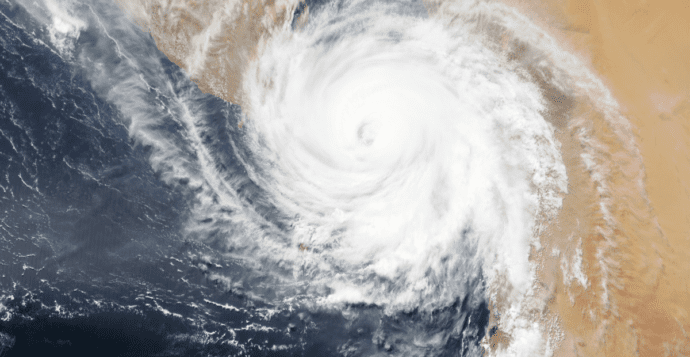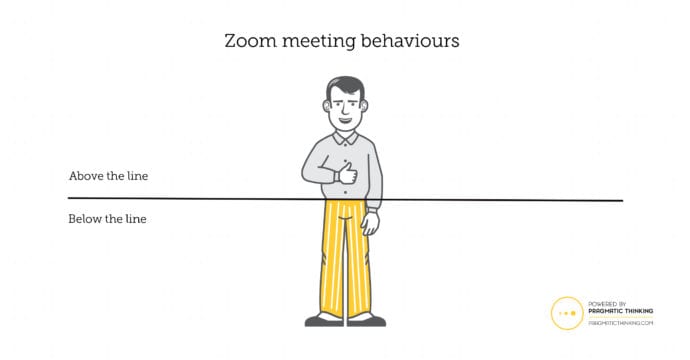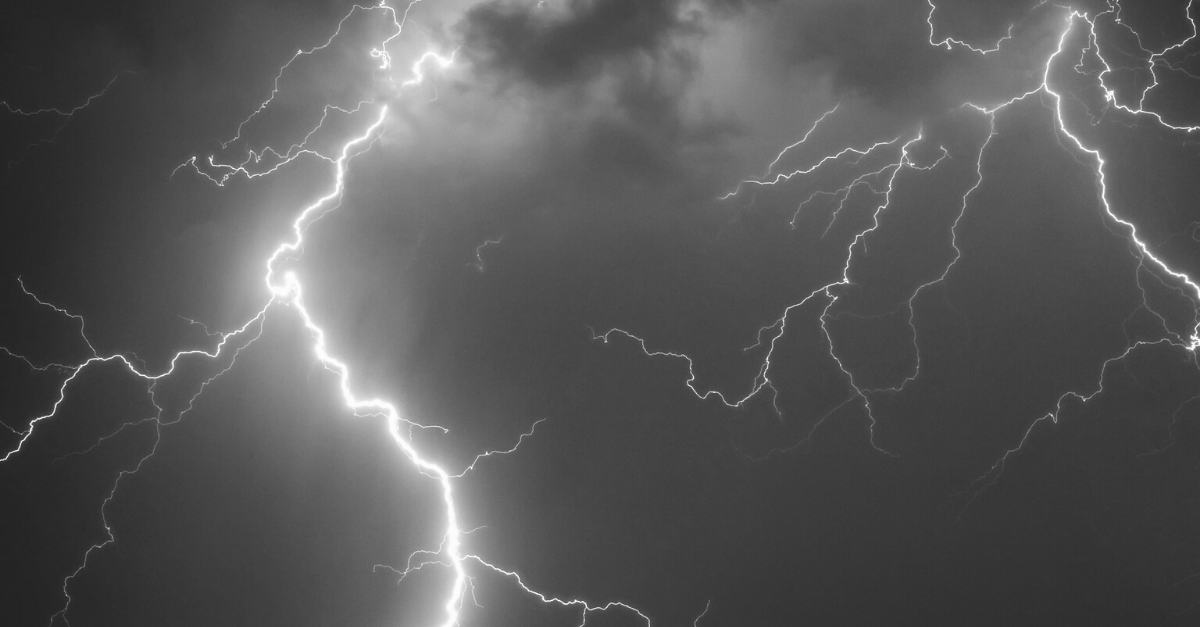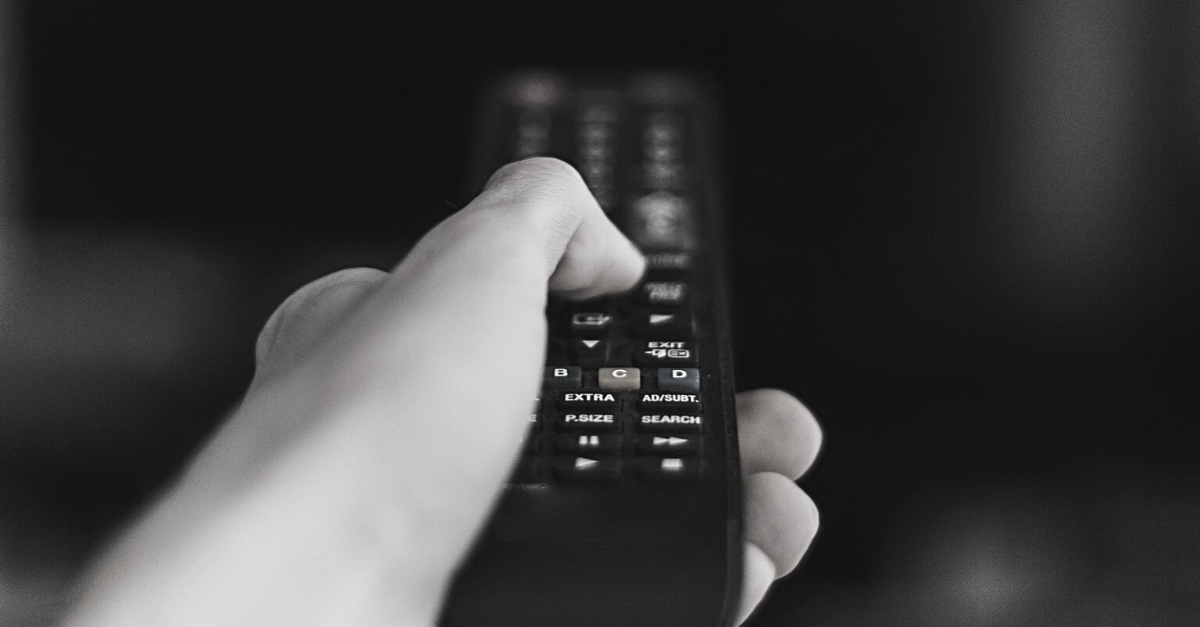In a time where almost every headline is screaming ‘crisis’ and ‘catastrophe’ in all caps, you may find yourself becoming numb to another dramatic headline.
If you hadn’t arrived here, I wouldn’t blame you for inoculating yourself from more drama in what has been an extraordinary few weeks.
But I confess, the term ‘motivational armageddon’ was purposefully designed to speak to your attention precursors—your brain’s limbic system—to give you fair warning (and time) to avoid further, and possibly prolonged, pain.
Let’s get straight to the source of the ‘weather event’ that you and your team need to prepare for.
Tuesday the 14th of April 2020, will mark the hard landing on the jagged terrain of rock bottom for many fortunate enough to still be gainfully employed.
[Note: My deepest apologies to those readers and business owners who may have lost their employment in the past month. I recognise that this article may sting (talking about work not working) in the rawness of a very uncertain future you face; my best wishes go to you as you find your way through this mess.]
After spending the past few weeks talking to business leaders, I fear for the experience that many will face, but hold confidence that with a level of understanding we can change our direction for the better.

The motivational storm is coming.
If you’re someone who has now been working virtually (working from home) for upwards of two weeks, then it’s time to start your preparations in battening down the hatches on your internal motivation systems as we look towards the lumpy horizon that is next week.
Y’see several events and circumstances are combining to create a storm of counter-productivity that will see our motivation levels drop like a barometer reading from a southern-ocean low-pressure system.
A bit like a weather event, it’s no singular meteorological catalyst responsible for this. It’s a complex ecosystem of contributing factors that will result in the poor conditions that would make even the most experienced sailor don the oilskins and chart a new course.
What have we got to thank for the impending motivational storm?
Those contributing factors are (but aren’t limited to):
- Loss of inherent motivational cues
- Social distancing
- Compromised goal structures
- An uncertain future
- Survivor guilt
- The extended long weekend (Easter)
The good news? We can chart a new course.
I’m not going to promise fair weather or calm seas, but there is a way to navigate around the eye of the storm and lessen the ferocity of what’s coming at us.
Let’s look at each of these contributing factors in a little more depth, shall we?
Key contributors to the motivational storm
Loss of inherent motivational cues.
It’s one of our greatest flaws; we tend to think we’re masters of our own destiny. Yet we highly underestimate the inherent behaviour-shaping that occurs via our physical environments.
Choice architecture or ‘nudging’ has been used in commercial contexts for decades; these days it’s something most people are aware of. Think about how a supermarket is laid out to encourage us to buy high-margin foods. It’s also visible in the way that when dining at McDonald’s you know to empty your tray into the bin before you leave. These are just a couple of examples of how our behaviour is manipulated in everyday life.
Work is no different. The way our offices, desks and work hours are programmed all encourage certain behaviours; often with very little conscious thought. With a sudden and unplanned shift to permanent (and indefinite) remote work, those behavioural cues and the discipline they bring are now gone. Without them? We’ll begin to see a natural drop in motivation.
Social distancing.
Regardless of where you sit on the introversion/extraversion scale, Homo Sapiens are at the core, a social animal. Think about it – the ultimate form of punishment is solitary confinement.
Huge amounts of research literature point to the correlation between poor mental health outcomes and isolating or withdrawing behaviours.
As we’ve become physically distant from our work colleagues we should expect to see a huge upheaval in our social wellbeing. This in turn is going to affect our general wellbeing and drive to complete work-related tasks.
Compromised goal structures.
When faced with a black swan event like COVID-19, most organisations and businesses have operated from crisis playbooks; where longer-term strategies and objectives have been replaced by short-term survival focus.
It makes perfect sense, in theory. However this response has buckled and warped our goal frameworks and progress markers for how we evaluate meaningful work. At a more granular level, our daily goal structures have also taken a hit.
For example, let’s say you start work at 8.30am and typically on Thursday there’s a steering committee meeting at 10.30am – with these two time-sensitive activities in your calendar you’ve inherently created something of a mini-goal or sprint to start the day.
Factor in a coffee break at 10am, and you have a work sprint for 90 mins between 8.30am-10.00am.
In losing these types of daily goal structures, we lose progress markers, which leads to a loss in overall motivation.
An uncertain future.
It takes a lot of work to reach a place where you are truly comfortable with uncertainty. But the work required isn’t physical work but emotional work.
In all honesty, the vast majority of people (including myself) haven’t done nearly enough emotional labor to handle the sheer load that is upon us right now.
Human beings like knowing, or at least being able to conjure up an image of the future. It brings us comfort and purpose.
With the sheer scale and speed of change enforced upon us by COVID-19, none of us have any idea what the future might look like, or when it will arrive.
A lack of certainty can bring experiences of hopelessness and despair with it. Neither of these is good news for our motivation levels.
Survivor guilt.
Even though we’re all navigating our collective grief and trauma (and make no mistake, this experience has all the hallmarks of grief) there’s a social narrative that’s taking root that’s incredibly destructive.
You might’ve seen it.
It’s social media memes like ‘All those things you said you were going to do but you’ve been too busy? Well now you don’t have any excuses’ or ‘Stop complaining about being made to sit in isolation, people used to fight wars’.
These are shame-based destructive narratives that don’t serve anyone other than the shamer to feel good about themselves.
Just because we have some things working in our lives doesn’t mean that everything should be written off as privilege run amok.
If you’re feeling sad or scared or angry, and yet some things in your life are still working, that’s not a reason to feel guilty for the way you’re feeling. It’s called being human in a once in a 100-year experience.
The extended long weekend (Easter).
And the cherry on top, 4 days off.
After an adrenalin-fuelled fortnight, the coming extended long weekend that is Easter will come as a blessed relief.
You should down tools.
Try and decompress from work, it’ll be good for your brain and your body.
But having run off such a high octane neurotransmitter such as Adrenalin (and its partner in crime, Cortisol) you’ll likely fall in a heap.
The return to unplanned, uncertain work will be a return to pain.
So how can I change the course?
It’s not too late and you can affect a change in your motivational frameworks. But it won’t come without effort and intention.
A few approaches listed below will serve you well.
How to weather the Motivational Storm
Build a routine.
For your mental health and general motivation, plan for exercise, schedule time in the sunlight, and make an effort to take your coffee and lunch breaks.

Having discipline like this means you have certainty and your psyche needs that in uncertain times. Also, try not to wear pyjama pants to your Zoom meetings. As tempting as it is, getting dressed as if you’re going to work will help you to get into the right mindset for working from home.
Win the morning.
Make your first two hours of the day your ‘critical’ two hours. If they start off sluggish, you can bet the rest of your day is likely to turn to sh*t.
Use the progress principle.
Our basal (most essential, foundational) motivator is having a sense of progress. Set yourself goals/challenges to harness this sense of autonomy and mastery.
Here are some ideas for that:
- Get your inbox back to zero.
- Find a task you’ve put off for too long and sprint at it hard.
- Set an alarm to for 45 minutes’ time and get that task done.
Connect with your team regularly.
Remember, you’re not an island. Sure you might be physically distanced, but it doesn’t mean you have to be emotionally distanced. Set yourself the challenge to connect with at least three people each day, whether it’s via Zoom, phone or even text.
Be a bragger.
It’s important for you to let people know what tasks you’re smashing out. Sing them loud and proud. Consider creating a dedicated Slack channel for your #dailywins. It’ll help keep you and your team accountable and motivated.
New week, new focus.
At this point in time we’ve been somewhere between 2-4 weeks into a new world of work, which is effectively a new way of life.
I’d deeply encourage you to think of next week (post-Easter) with a first-day, new-job mentality.
Think carefully about how you want to structure your day and how you can reshape your motivation for work. Because, without sounding overly dramatic, your quality of life depends upon it.
After all, work is a third of our lives. A third for sleep, a third for work, and a third for the rest of the stuff. Yet it’s only in times like these where we get a rude awakening of just how big an impact work has on our lives.
We tend to treat ‘work’ as a second class citizen. Often an afterthought, seldom with any form of gratitude, much less reverence. And yet, when work ‘works’, life is soooo much better.
It’s possible that only now we are starting to appreciate how important, and how much a privilege it is to have and engage in meaningful, challenging work.
Best of luck from Tuesday 14th onwards, you’ve got this.


